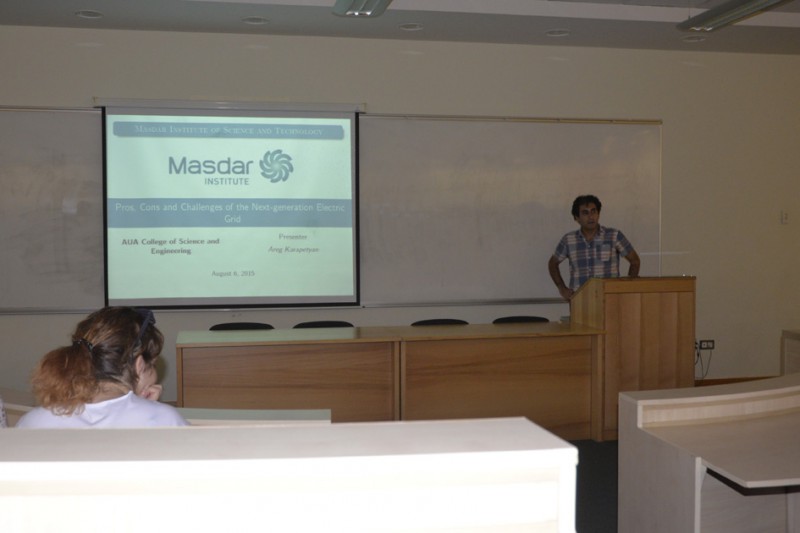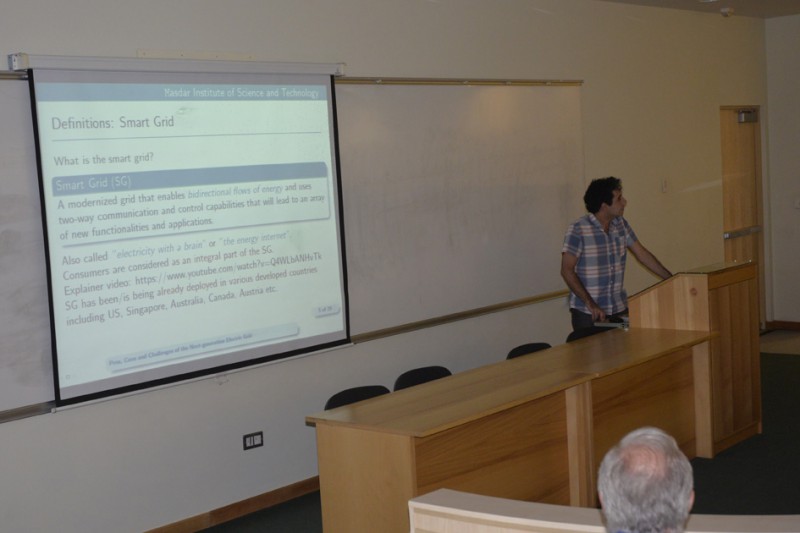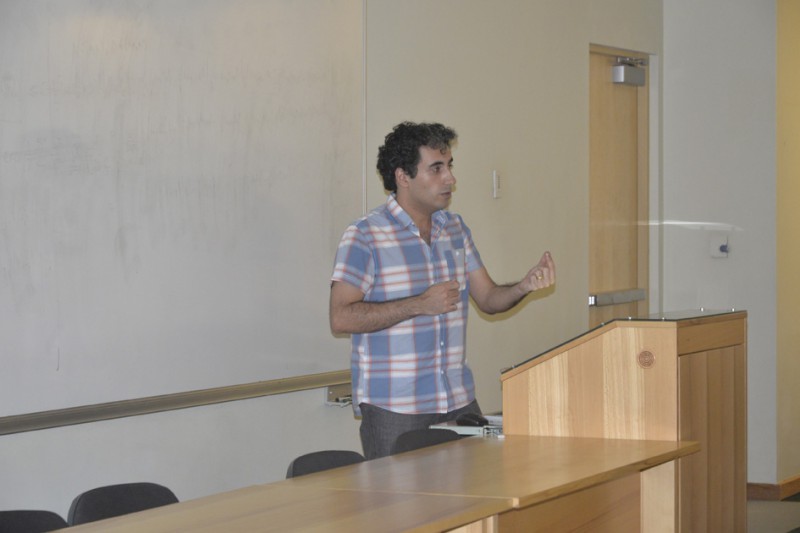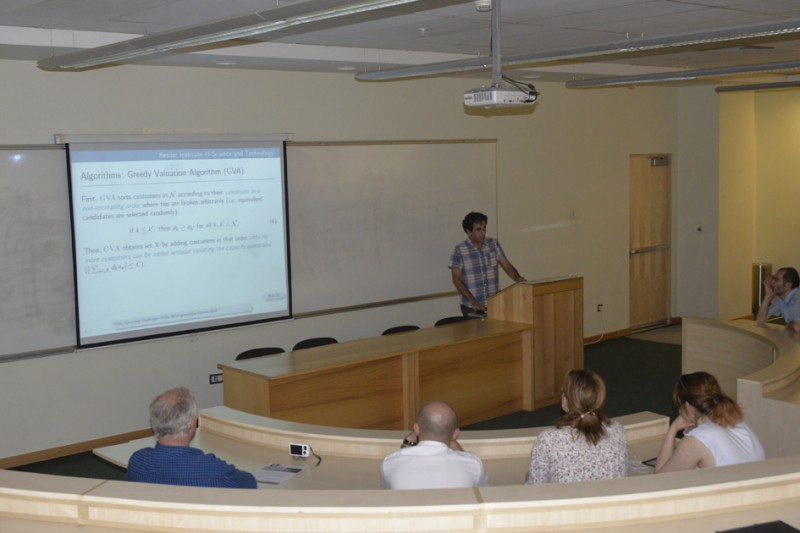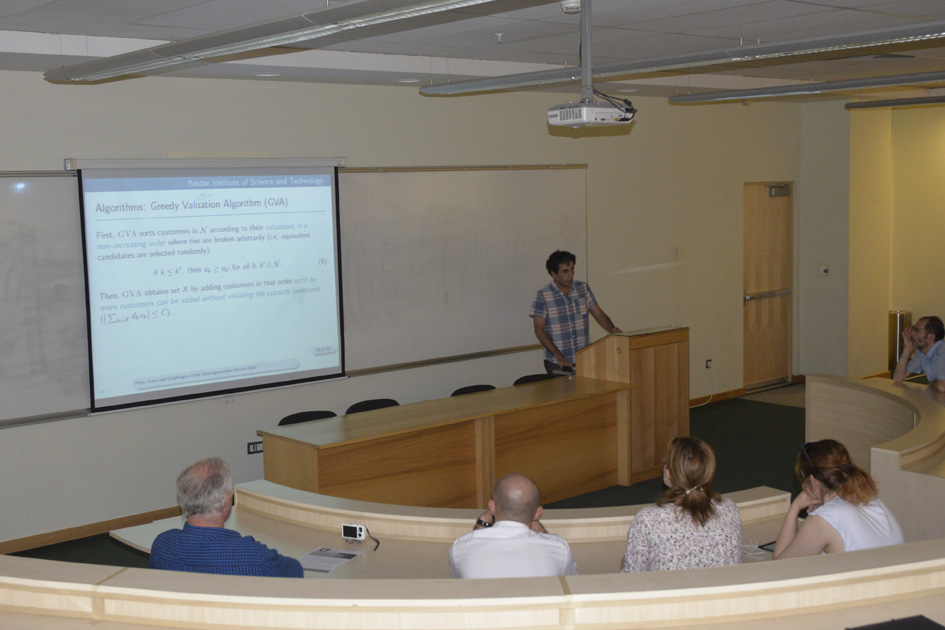
Pros, Cons, and Challenges of the Next-Generation Electric Grid: Establishing a Bridge between Theoretical Computer Science and Power Engineering
< 1 min readYEREVAN, Armenia – On August 6, 2015, the American University of Armenia (AUA) College of Science and Engineering held a lecture entitled “Pros, Cons, and Challenges of the Next-Generation Electric Grid: Establishing a Bridge between Theoretical Computer Science and Power Engineering,” with speaker Areg Karapetyan.
The lecture discussed the recent growth in environmental awareness and the shift towards more convenient, safe, and green means of power generation, such as the Smart Grid (SG), which promises to solve the major drawbacks and vulnerabilities of the old grid infrastructure and meet the rapidly growing global environmental concerns associated with it.
Areg Karapetyan graduated in 2010 from the Department of Cybernetics at the State Engineering University of Armenia (SEUA), majoring in Electronic Engineering. He then joined Masdar Institute of Science and Technology (MIT Partner University) as a M.Sc. student in the Department of Computing and Information Science, and in 2015 obtained his Master’s degree in Computing and Information Science.
He is currently enrolled in a Ph.D. program at Masdar Institute of Science and Technology under the guidance and supervision of Dr. Khaled Elbassioni. His research activities and interests chiefly focus on Combinatorics, Design and Analysis of Algorithms, Optimisation, Game Theory and their practical application in AC electric systems and networks.
Founded in 1991, the American University of Armenia (AUA) is a private, independent university located in Yerevan, Armenia and affiliated with the University of California. AUA provides a global education in Armenia and the region, offering high-quality, graduate and undergraduate studies, encouraging civic engagement, and promoting public service and democratic values.

